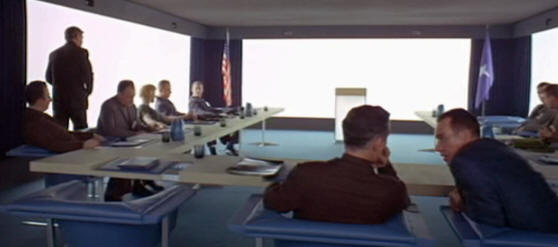You are using an out of date browser. It may not display this or other websites correctly.
You should upgrade or use an alternative browser.
You should upgrade or use an alternative browser.
The US Space Force
- Thread starter VTOLicious
- Start date
“We’ve got to … stop debating if it’s a warfighting domain, stop debating whether there are weapons, and get to the point of how do we responsibly, as part of the joint and combined force, deter conflict that nobody wants to see, but if we do see it, demonstrate our ability to win?” he said. “We have to get about the process and the prospects of — from multiple domains, not just the space domain — providing capability to find, fix and deny any adversary capability to find and target US forces or allied forces.”

'Stop debating' over space weapons and prepare for conflict: Space Force general - Breaking Defense
A Mitchell Institute policy paper essentially lays out an implementation plan for what Chief of Space Operations Gen. Chance Saltzman has dubbed "responsible counterspace campaigning."
- Joined
- 21 January 2015
- Messages
- 10,688
- Reaction score
- 12,350
Innovative Rocket Technologies, known as iRocket, won a U.S. Space Force contract to demonstrate a reusable rocket engine for small launch vehicles.
The $1.8 million agreement with the U.S. Space Systems Command is a Tactical Funding Increase, or TACFI, where the government and private investors split the cost 50/50.
The New York-based startup, founded in 2018, develops rocket engines and plans to build a small launch vehicle.
The 18-month TACFI contract, announced June 28, was awarded by AFWERX, a U.S. Air Force technology accelerator.
“Under the contract, iRocket will further develop our highly reusable rocket engine,” said Asad Malik, founder and CEO.
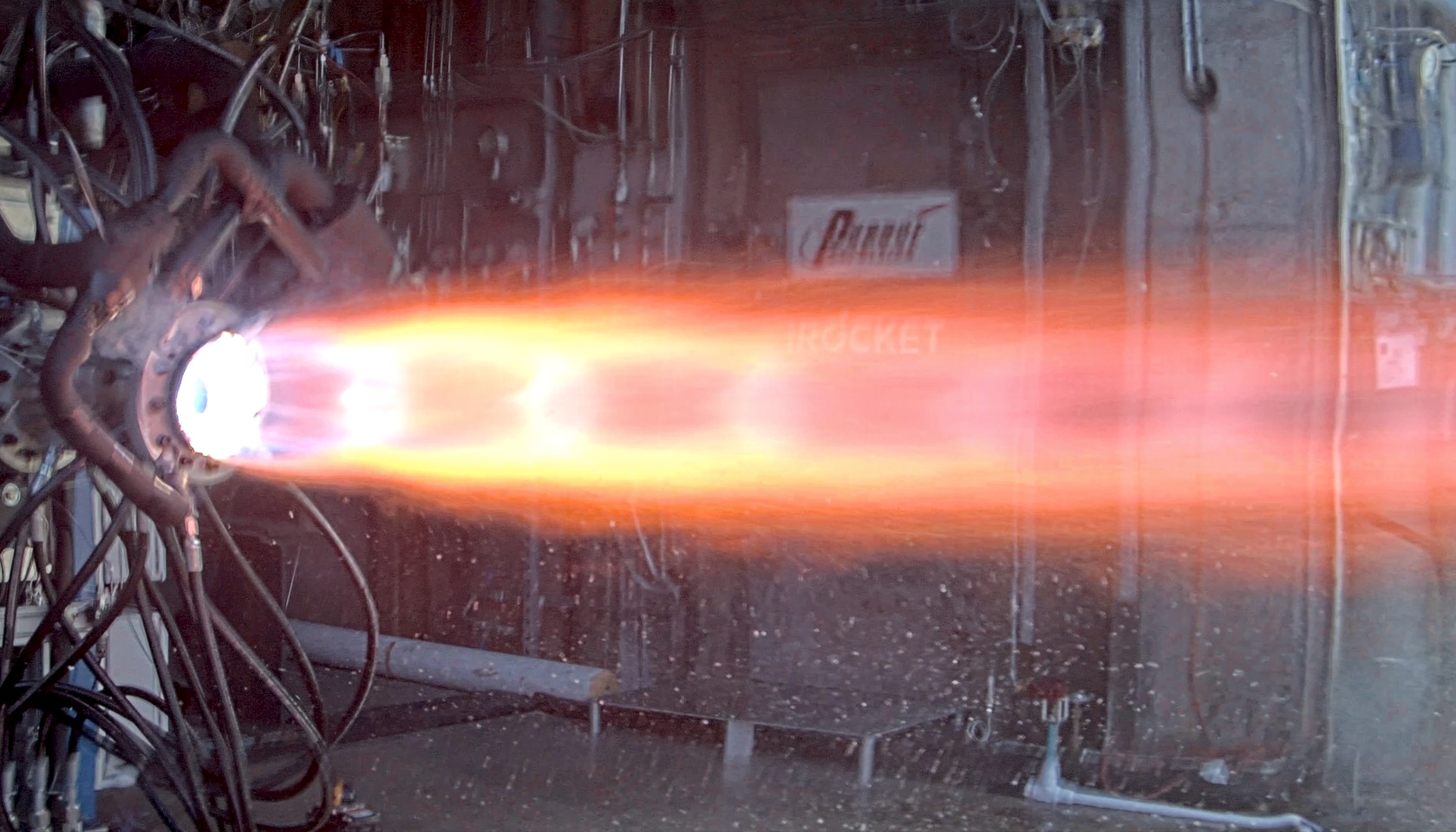
Startup iRocket wins Space Force contract to demonstrate rocket engine
Startup iRocket wins Space Force contract to demonstrate rocket engine
Forest Green
ACCESS: Above Top Secret
- Joined
- 11 June 2019
- Messages
- 5,102
- Reaction score
- 6,698

Space Force chief seeks to 'shift mindset' to defend Joint Force on the ground - Breaking Defense
"While important, a narrow focus on protecting space capabilities disregards how U.S. strategic competitors are preparing to use their own space capabilities to find, target, and attack forces operating in the terrestrial domains," Gen. Chance Saltzman wrote in an internal Commander's Note...
jsport
what do you know about surfing Major? you're from-
- Joined
- 27 July 2011
- Messages
- 6,565
- Reaction score
- 3,915

Space Force chief seeks to 'shift mindset' to defend Joint Force on the ground - Breaking Defense
"While important, a narrow focus on protecting space capabilities disregards how U.S. strategic competitors are preparing to use their own space capabilities to find, target, and attack forces operating in the terrestrial domains," Gen. Chance Saltzman wrote in an internal Commander's Note...
This was what the ABMA was gunning for right before the end.
Space Force chief seeks to 'shift mindset' to defend Joint Force on the ground - Breaking Defense
"While important, a narrow focus on protecting space capabilities disregards how U.S. strategic competitors are preparing to use their own space capabilities to find, target, and attack forces operating in the terrestrial domains," Gen. Chance Saltzman wrote in an internal Commander's Note...breakingdefense.com
Look for pushback...
martinbayer
ACCESS: Top Secret
- Joined
- 6 January 2009
- Messages
- 2,374
- Reaction score
- 2,100
For any United States "force" in physical space, it's ultimately about kinetic assets...
For any United States "force" in physical space, it's ultimately about kinetic assets...
Not necessarily. There are a number of non kinetic options. In fact I consider it unlikely that USSF will develop kinetic weapons (outside a couple existing dual use systems) given the high risk to own infrastructure using them.
martinbayer
ACCESS: Top Secret
- Joined
- 6 January 2009
- Messages
- 2,374
- Reaction score
- 2,100
If that were the case, it would certainly break the mold of USA, USN, USAF, and USMC all having physical assets capable of kinetic options.For any United States "force" in physical space, it's ultimately about kinetic assets...
Not necessarily. There are a number of non kinetic options. In fact I consider it unlikely that USSF will develop kinetic weapons (outside a couple existing dual use systems) given the high risk to own infrastructure using them.
Kat Tsun
I really should change my personal text
- Joined
- 16 June 2013
- Messages
- 1,126
- Reaction score
- 1,259
Delta 9 handles orbital warfare. Space warfare is extremely boring though and mostly consists of jamming at the moment. It should be somewhat obvious that smashing enemy satellites is often counter-productive. Most USSF's conceptual space warfare systems consist of orbital tugs and parasite craft that dislodge high altitude birds from expected orbits. That's most of the killing of them with none of the risks of fratricide.
Space warfare is just going to be high tempo dances of dumb looking satellites with Canadarms trying to wiggle each other's solar panels and communication dishes out of alignment, attach goofy thruster packs to send one of them careening into a wild orbit that eats delta-v to recover, or use HPMs to fry onboard computer systems.
That said the USSF is pretty active in the Ukraine War.
Space warfare is just going to be high tempo dances of dumb looking satellites with Canadarms trying to wiggle each other's solar panels and communication dishes out of alignment, attach goofy thruster packs to send one of them careening into a wild orbit that eats delta-v to recover, or use HPMs to fry onboard computer systems.
That said the USSF is pretty active in the Ukraine War.
Last edited:
If that were the case, it would certainly break the mold of USA, USN, USAF, and USMC all having physical assets capable of kinetic options.For any United States "force" in physical space, it's ultimately about kinetic assets...
Not necessarily. There are a number of non kinetic options. In fact I consider it unlikely that USSF will develop kinetic weapons (outside a couple existing dual use systems) given the high risk to own infrastructure using them.
Non kinetic doesn’t mean nondestructive. I just think their operating environment doesn’t cater to thing’s running into each other.
Forest Green
ACCESS: Above Top Secret
- Joined
- 11 June 2019
- Messages
- 5,102
- Reaction score
- 6,698
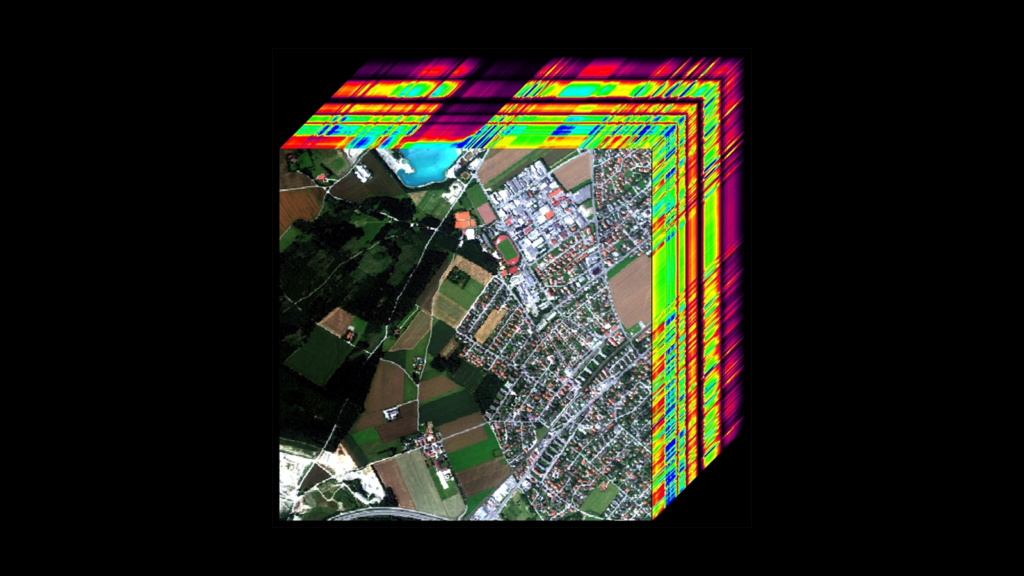
Orbital Sidekick: Taking hyperspectral imaging from the garage to the Pentagon - Breaking Defense
"Hyperspectral is kind of starting to have its moment in the sun, so to speak," said Dan Katz, CEO and co-founder of Orbital Sidekick.
jsport
what do you know about surfing Major? you're from-
- Joined
- 27 July 2011
- Messages
- 6,565
- Reaction score
- 3,915
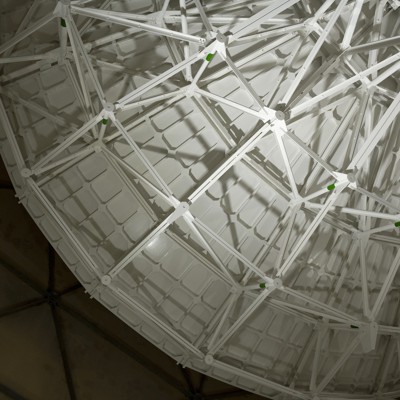
Space Command wants ‘sustained’ satellite maneuverability by 2028
A top U.S. space official says his command is constrained by current satellites’ fuel capacity.
Forest Green
ACCESS: Above Top Secret
- Joined
- 11 June 2019
- Messages
- 5,102
- Reaction score
- 6,698
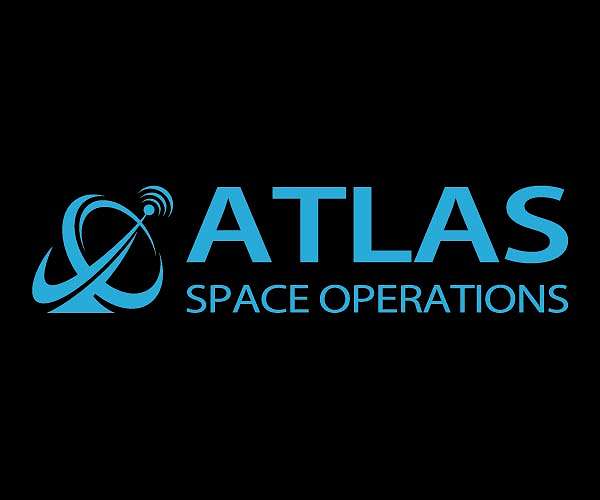
ATLAS Space launches Freedom Space for Government Missions
Colorado Springs CO (SPX) Jul 08, 2023 - ATLAS Space Operations, a front-runner in Ground Software as a Service (GSaaS) provision, is broadening its reach with the inauguration of its subsidiary, Freedom Space Technologies. This developmen
www.spacewar.com
Forest Green
ACCESS: Above Top Secret
- Joined
- 11 June 2019
- Messages
- 5,102
- Reaction score
- 6,698

There goes my missile: SDA eyes new FOO Fighter missile defense 'fire control' sats - Breaking Defense
The new "Fire-Control On Orbit-Support-To-The-War Fighter (FOO Fighter or F2)" program "will accelerate the ability to provide new fire control options for the tactical users," an SDA spokesperson told Breaking Defense. But how does it play with MDA programs?
jsport
what do you know about surfing Major? you're from-
- Joined
- 27 July 2011
- Messages
- 6,565
- Reaction score
- 3,915

SDA racing ahead with new, US-based satellite ground stations, could meet hiccup abroad - Breaking Defense
SDA Director Derek Tournear also shed some more light on the agency's new, highly secretive FOO Fighter program to develop new fire control quality tracking satellites.
jsport
what do you know about surfing Major? you're from-
- Joined
- 27 July 2011
- Messages
- 6,565
- Reaction score
- 3,915

Space Force should offer European allies protection from anti-satellite attacks: Saltzman - Breaking Defense
“The destruction of a satellite may not have that same public effect as a missile attack into a civilian population, but from a military standpoint, you’ve still definitely created an act of war,” said Gen. Chance Saltzman.
I like that part that is absolutely true:
He was also clear about some of the key areas “ripe for collaboration” between Space Force and European partners, mainly covering “equipment, training and policy” — areas in line with the service’s “partner to win” ambition.
Joint requirements with European allies are, he said, much “less complicated” to plan and discuss compared to joint procurements.
Forest Green
ACCESS: Above Top Secret
- Joined
- 11 June 2019
- Messages
- 5,102
- Reaction score
- 6,698
SDA: Tranche 0 Link 16 Transmission In October, Second Launch In August | Aviation Week Network
SDA in April launched its first Tranche 0 data transport satellites, which will send the datalink to military cockpits and other receivers below.
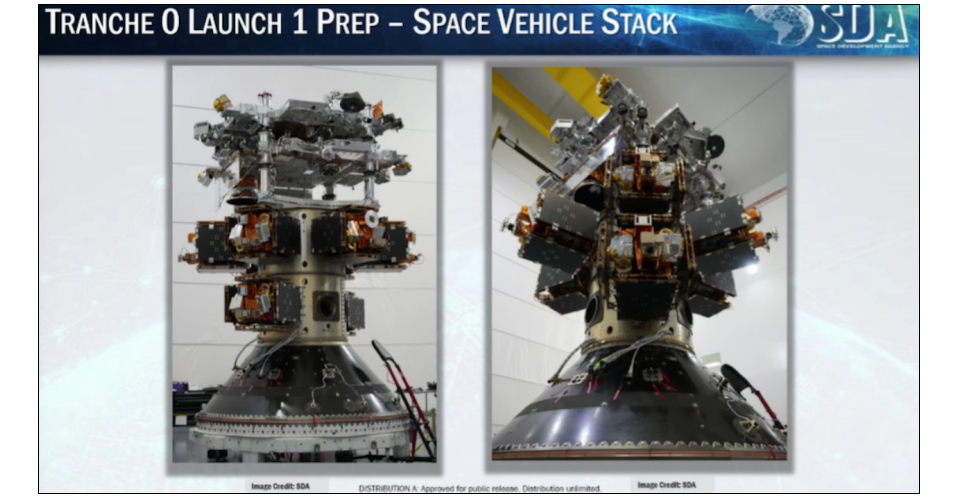
aonestudio
I really should change my personal text
- Joined
- 11 March 2018
- Messages
- 2,546
- Reaction score
- 5,969
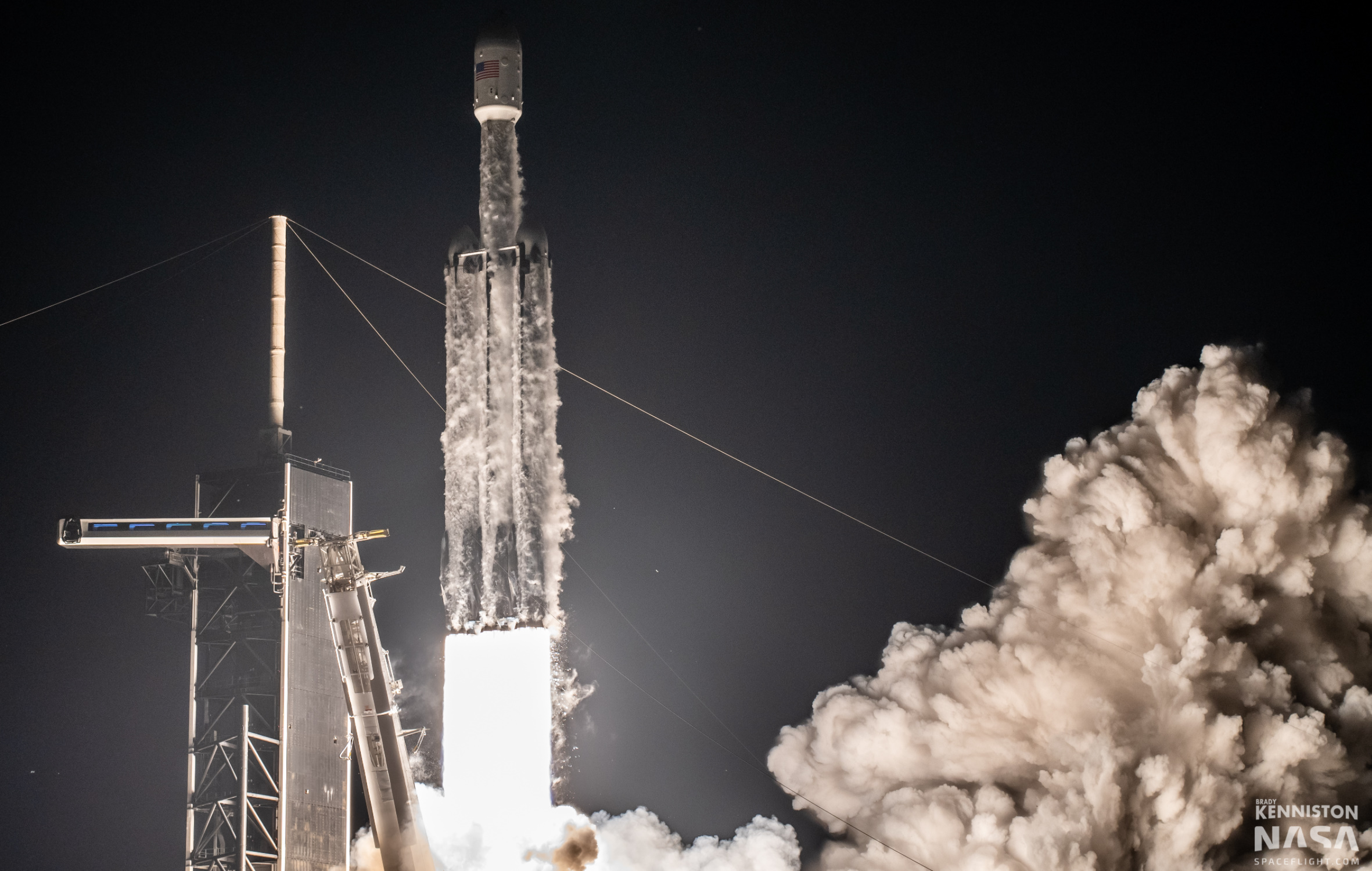
Space Force releases NSSL phase three second draft - NASASpaceFlight.com
The United States Space Force (USSF) recently released a second draft of a request for…
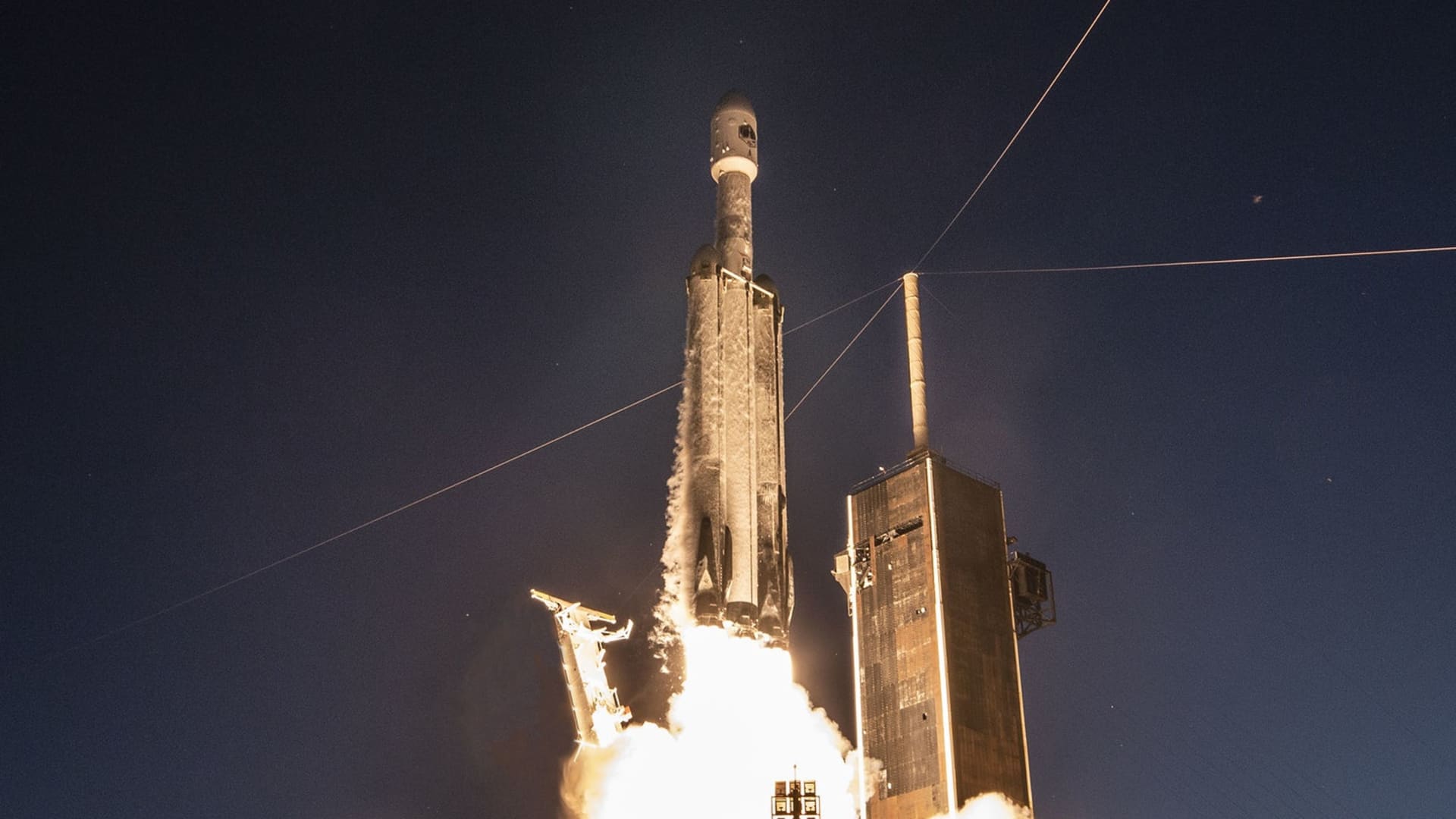
Space Force raises the stakes as rocket companies compete for lucrative military missions
The U.S. military plans to buy even more rocket launches from companies in the coming years than previously expected.
- Joined
- 21 January 2015
- Messages
- 10,688
- Reaction score
- 12,350
The US Space Force is set to launch a constellation of satellites this summer to track Chinese or Russian space vehicles that can potentially disable or damage orbiting objects, the latest step in the burgeoning extra-terrestrial contest between superpowers.

"Silent Barker": US Spy Satellite To Counter Russia, China Threats
The US Space Force is set to launch a constellation of satellites this summer to track Chinese or Russian space vehicles that can potentially disable or damage orbiting objects, latest step in burgeoning extra-terrestrial contest between superpowers.
jsport
what do you know about surfing Major? you're from-
- Joined
- 27 July 2011
- Messages
- 6,565
- Reaction score
- 3,915

Space Force should offer European allies protection from anti-satellite attacks: Saltzman - Breaking Defense
“The destruction of a satellite may not have that same public effect as a missile attack into a civilian population, but from a military standpoint, you’ve still definitely created an act of war,” said Gen. Chance Saltzman.

SDA racing ahead with new, US-based satellite ground stations, could meet hiccup abroad - Breaking Defense
SDA Director Derek Tournear also shed some more light on the agency's new, highly secretive FOO Fighter program to develop new fire control quality tracking satellites.
- Joined
- 21 January 2015
- Messages
- 10,688
- Reaction score
- 12,350
Currently ULA and SpaceX are the only NSSL launch providers. Due to concerns about growing commercial demand, the Space Force in a revised solicitation July 14 said it planned to select a third provider in NSSL Phase 3, creating an opportunity for a new entrant like Blue Origin which is developing a heavy rocket.
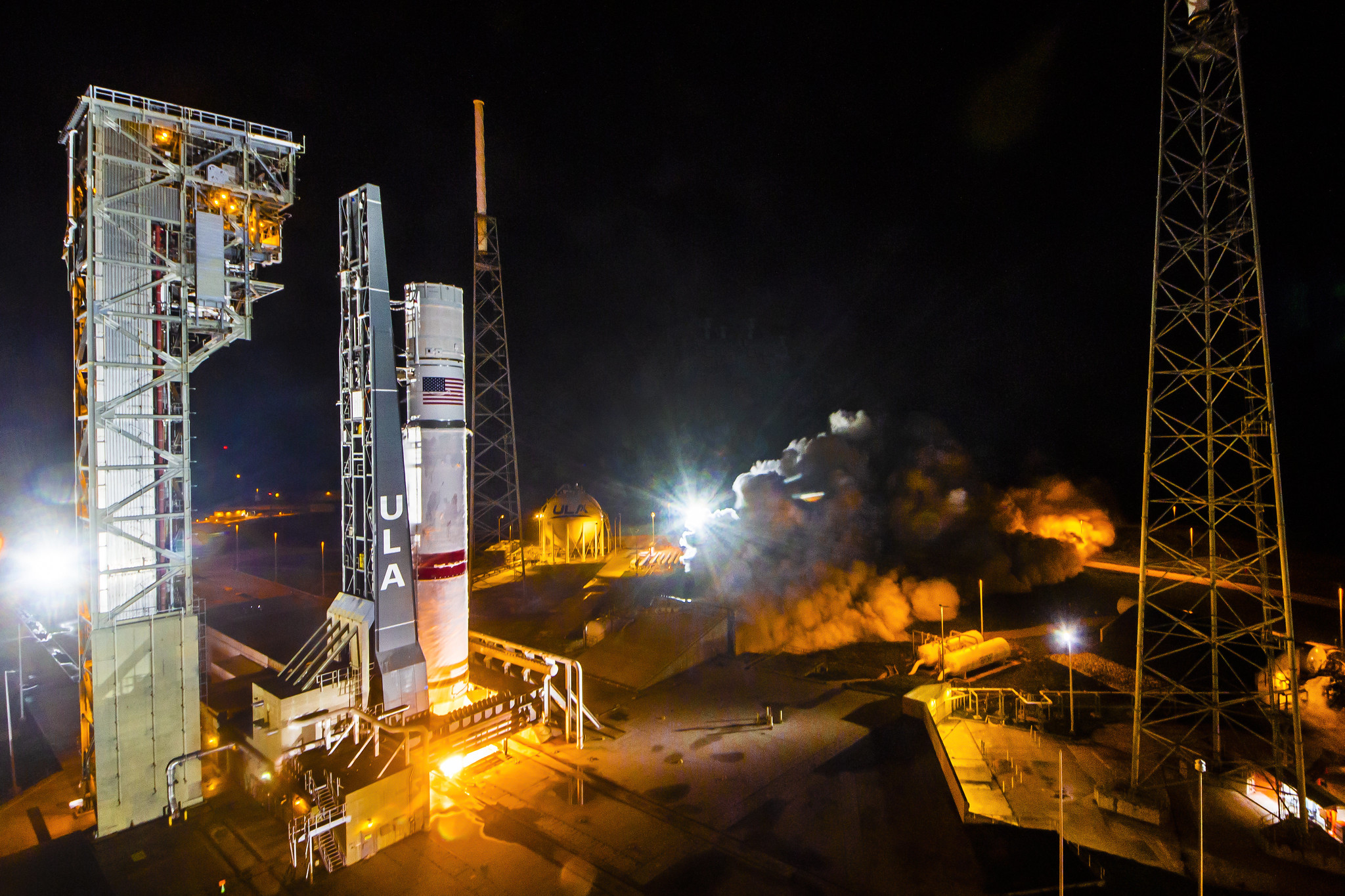
ULA has concerns about a third competitor in national security space launch
ULA has concerns about a third competitor in national security space launch
Forest Green
ACCESS: Above Top Secret
- Joined
- 11 June 2019
- Messages
- 5,102
- Reaction score
- 6,698
Forest Green
ACCESS: Above Top Secret
- Joined
- 11 June 2019
- Messages
- 5,102
- Reaction score
- 6,698

Lockheed Martin Successfully Completes Critical Design Review for Space Development Agency’s Tranche 1 Transport Layer Satellites
LITTLETON, Colo., Aug. 07, 2023 – Lockheed Martin (NYSE: LMT) and the Space Development Agency (SDA) successfully completed the Critical Design Review (CDR) for SDA’s Tranche 1 Transport Layer...
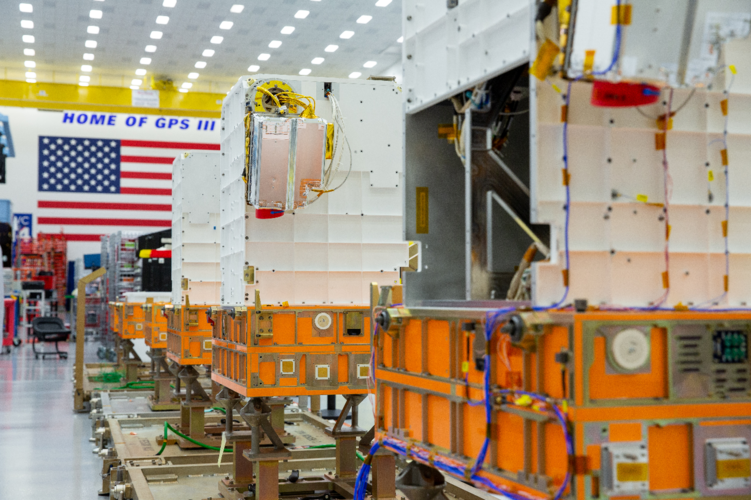
Forest Green
ACCESS: Above Top Secret
- Joined
- 11 June 2019
- Messages
- 5,102
- Reaction score
- 6,698
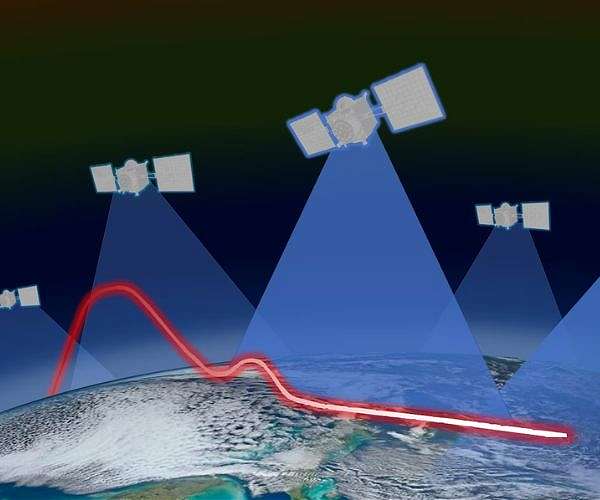
Lockheed Martin opens facility for rapid development of small satellites
Littleton CO (SPX) Aug 08, 2023 - Lockheed Martin (NYSE: LMT) has opened a facility that streamlines small satellite (smallsat) processing to enable high-rate delivery. The multi-million dollar facility will house the company's Spac
www.spacewar.com
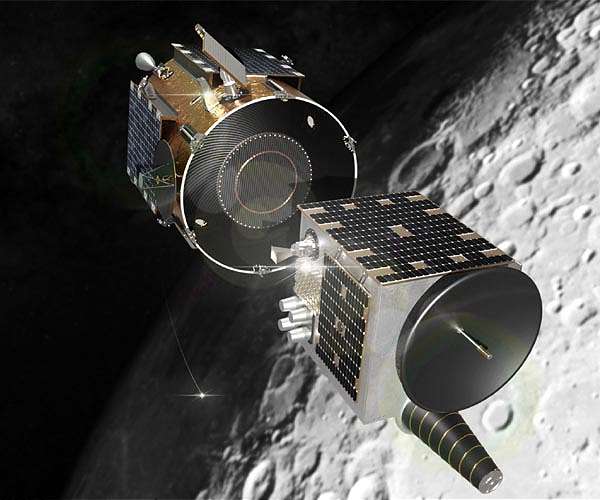
Firefly Aerospace and Xtenti collaborate to conduct responsive space tests for NRO
Cedar Park TX (SPX) Aug 09, 2023 - Firefly Aerospace, Inc., an end-to-end space transportation company, has announced a new agreement with Xtenti, LLC, an innovative space logistics company, to conduct a responsive space mission with
www.spacewar.com
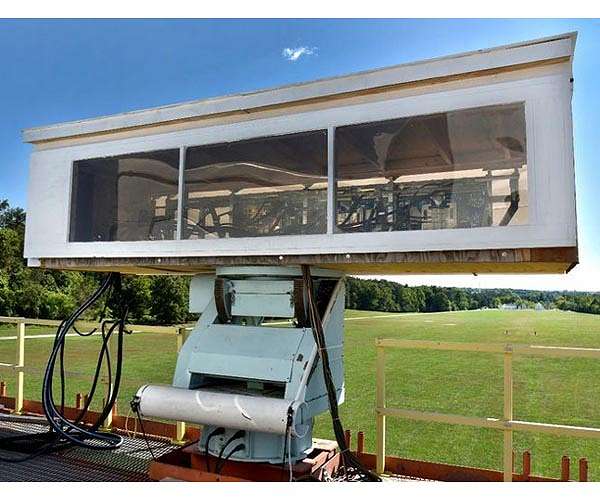
Viasat receives $80M for Multi-Function AESAs across warfighting domains
Carlsbad CA (SPX) Aug 08, 2023 - Viasat Inc. (NASDAQ: VSAT) has received awards totaling over $80 million to develop Active Electronically Scanned Array (AESA) systems for ground, maritime, and space applications. AESA, a typ
www.spacewar.com
Forest Green
ACCESS: Above Top Secret
- Joined
- 11 June 2019
- Messages
- 5,102
- Reaction score
- 6,698
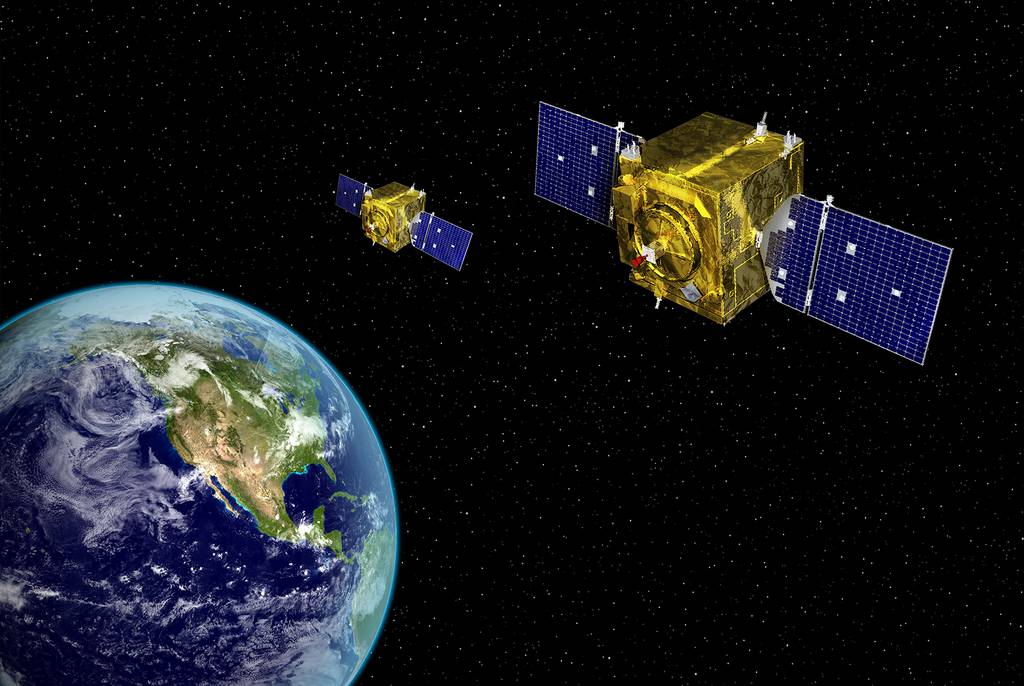
How the Space Force is preparing its ground systems for ‘dynamic’ ops
The Space Rapid Capabilities Office is leading an effort to develop and integrate a modernized suite of tools to perform dynamic space operations.
jsport
what do you know about surfing Major? you're from-
- Joined
- 27 July 2011
- Messages
- 6,565
- Reaction score
- 3,915

Space Force Holds First-Ever Forum with Japan to Build Next Steps for Cooperation
Top U.S. Space Force and Japan Air Self-Defense Force leaders met July 13 for the two countries’ first-ever Space Engagement Talk.
Forest Green
ACCESS: Above Top Secret
- Joined
- 11 June 2019
- Messages
- 5,102
- Reaction score
- 6,698

Irregular warfare in space is an ongoing threat – and the US must adapt. - Breaking Defense
Among "gray zone" threats in space are cyberattacks against space services, attacking commercial space capabilities during conflict, and conducting proximity operations to potentially coerce others, writes Dr. John J. Klein in this analysis.
Forest Green
ACCESS: Above Top Secret
- Joined
- 11 June 2019
- Messages
- 5,102
- Reaction score
- 6,698
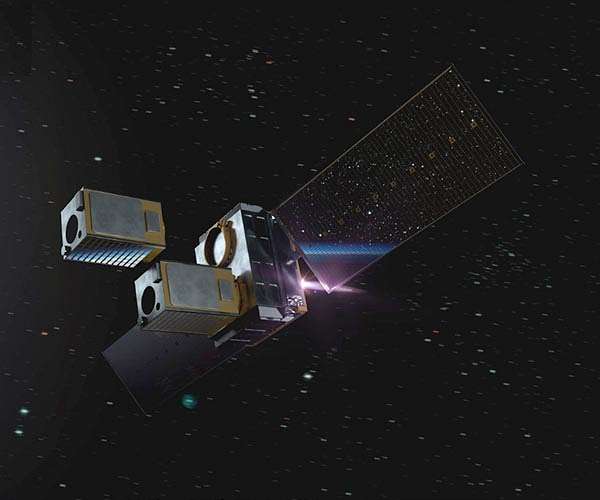
Momentus awarded innovation research contract from Space Development Agency
San Jose CA (SPX) Aug 15, 2023 - Momentus Inc. (NASDAQ: MNTS) has signed a contract with the U.S. Defense Department's Space Development Agency (SDA) for a Small Business Innovation Research Award, Orbital Service Vehicle Enhancem
www.spacewar.com
aonestudio
I really should change my personal text
- Joined
- 11 March 2018
- Messages
- 2,546
- Reaction score
- 5,969

Space Force's first targeting squadron brought to life
The U.S. Space Force's first targeting squadron, the 75th Intelligence, Surveillance and Reconnaissance Squadron, was activated during a ceremony Aug. 11, 2023, at Peterson Space Force Base, Colorado.

US Space Force creates 1st unit dedicated to targeting adversary satellites
"We are changing the way targeting is done across the joint community when it comes to space and electromagnetic warfare."
Forest Green
ACCESS: Above Top Secret
- Joined
- 11 June 2019
- Messages
- 5,102
- Reaction score
- 6,698
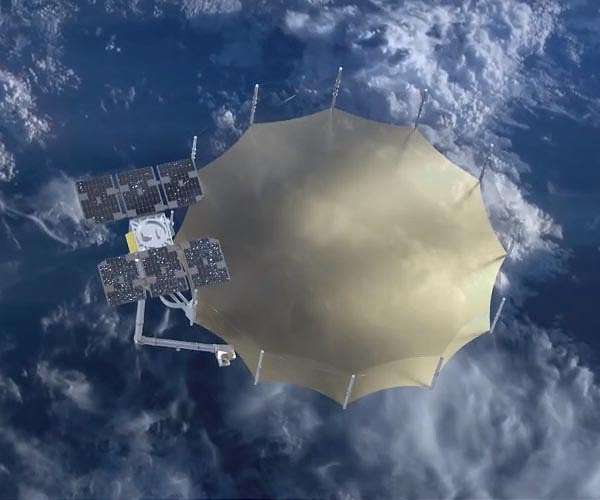
US Space Force boosts resilience with Capella Federal's satellite services contract
San Francisco CA (SPX) Aug 20, 2023 - The satellite realm experienced a significant development as Capella Federal, a prominent subsidiary of Capella Space, secured a contract for Proliferated Low Earth Orbit Satellite-Based Services (P
www.spacewar.com
jsport
what do you know about surfing Major? you're from-
- Joined
- 27 July 2011
- Messages
- 6,565
- Reaction score
- 3,915

Space Force Gets Its First Targeting Squadron. Here’s What It Will Do
The first-ever Space Force targeting squadron scopes out adversary space systems and presents options for neutralizing them.
jsport
what do you know about surfing Major? you're from-
- Joined
- 27 July 2011
- Messages
- 6,565
- Reaction score
- 3,915

Enhancing 'lethality': First Space Force 'operations' doctrine cements role within Joint Force - Breaking Defense
Space Doctrine Publication 3.0, crafted by STARCOM, provides baseline definitions for offensive, defensive, and "mobility and logistics" ops.
Forest Green
ACCESS: Above Top Secret
- Joined
- 11 June 2019
- Messages
- 5,102
- Reaction score
- 6,698
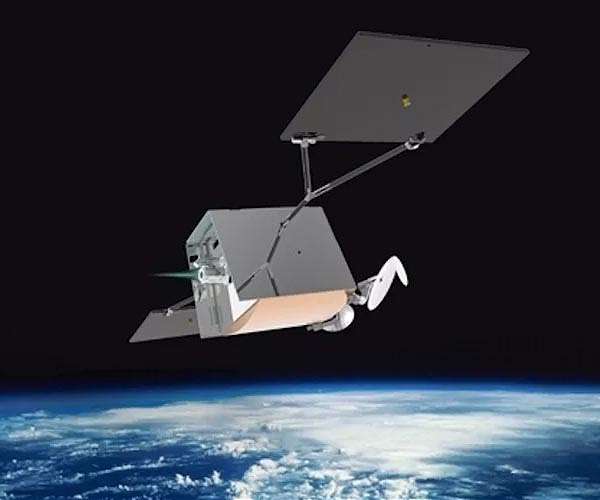
USSF contracts OneWeb for commercial LEO communications services
Houston TX (SPX) Aug 22, 2023 - OneWeb Technologies has been awarded a Commercial Satellite Communications Proliferated Low Earth Orbit (p-LEO) contract from the U.S. Space Force (USSF), Space Systems Command (SSC), Commercial Spa
www.spacewar.com
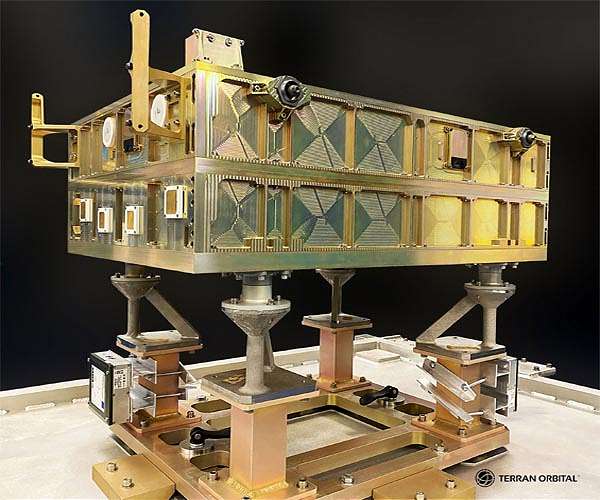
Pentagon awards contracts for next 'swarm' of tiny missile defense satellites
Washington DC (UPI) Aug 21, 2021 - The Pentagon announced Monday it has awarded $1.5 billion to contractors Northrop Grumman and Lockheed Martin for a swarm of 72 tiny prototype satellites meant to detect incoming enemy missiles.
www.spacewar.com

Lockheed Martin to supply 36 Small Satellites to advance SDA satcom network
Littleton CO (SPX) Aug 22, 2023 - The Space Development Agency (SDA) awarded Lockheed Martin (NYSE: LMT) a firm-fixed price agreement valued at approximately $816 million to build 36 Tranche 2 Transport Layer (T2TL) Beta satellites.
www.spacewar.com
- Joined
- 21 January 2015
- Messages
- 10,688
- Reaction score
- 12,350
- Joined
- 21 January 2015
- Messages
- 10,688
- Reaction score
- 12,350
View: https://twitter.com/ulalaunch/status/1695092619678798041
Our #AtlasV rocket has arrived at its Cape Canaveral pad for Tuesday's launch of of a new national security capability, called #SILENTBARKER #NROL107, that will advance Space Domain Awareness. bit.ly/av_SILENTBARKER

